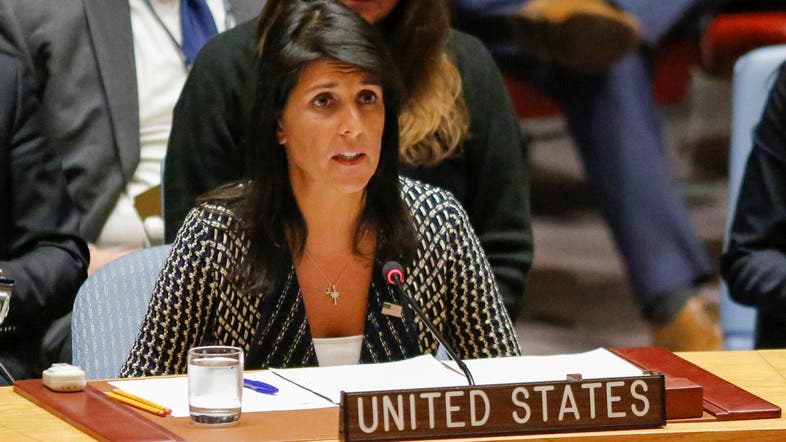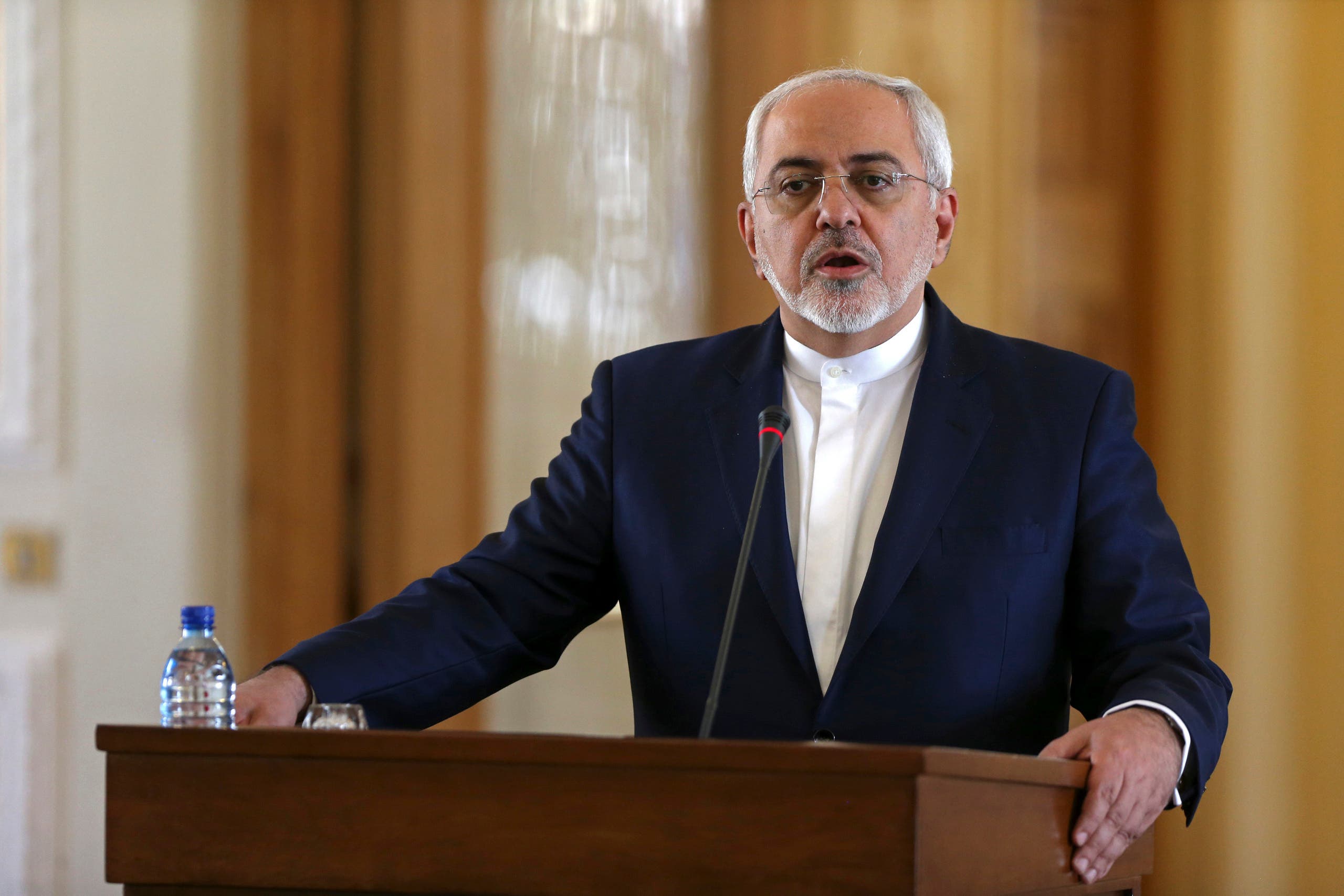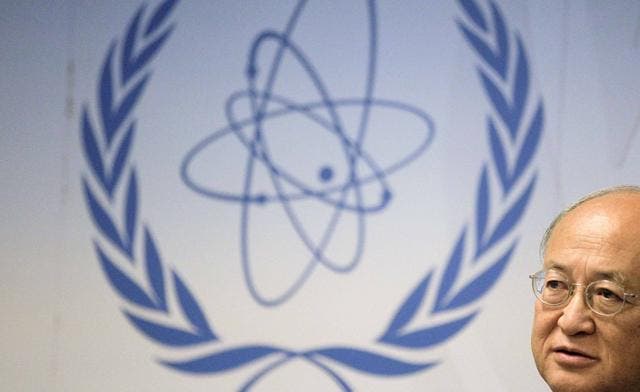
Nikki Haley speaks at the UN Security Council emergency meeting over North Korea’s missile launch on August 29, 2017 in New York. (AFP)
F. Mahmoudi, Special to Al Arabiya EnglishMonday, 4 September 2017
There is an Iranian saying that when someone is suspicious and not trustworthy, he has something in his shoes!
The root of this proverb comes from a time when people used to hide dagger in there boots and used when needed. This story seems to be true for members of the Iranian regime.
The anouncement of Nikki Haley’s visit to Viennaon August 23 and her meeting with Yukiya Amano, the Director General of the International Atomic Energy Agency, regarding the US demanding UN inspection of Iranian military sites, has been terrifying Tehran. Are they hiding anything in their shoes?
Iranian Foreign Minister Mohammad Javad Zarif described the visit as the “continuation of US violations of the JCOPA (Joint Comprehensive Plan of Action)” and in a letter to the High Representative of the European Union Federica Mogherini and Amano while “expressing concern about the stated objectives” moreover wrote that “this trip can undermine the credibility of the agency”.In response to these concerns, Haley said: “It’s interesting to me that Iran is so worried about my trip to Vienna. If they do not have anything to hide, they should not be worried about my questions from the agency. And if the activities of the Iranian regime are peaceful and there is nothing to hide, why are they rejecting their military sites to be visited by international inspectors?The news shows that the Iranian regime has suspicious activities in Parchin.”
For several years, IAEA has insisted Iran must disclose all aspects of its atomic military program. (AFP)
The military dimension
Questions that Haley is looking to answer as a US government representative include how to resolve the “possible military dimension” case, the documents and indications of the military dimension of the nuclear program of the Iranian regime, which was one of the serious conflicts during the nuclear negotiations.
Another aspect is the permission of IAEA inspectors for access to military centres, in particular the non-transparent site in Parchin, which was bungled by the Iranian regime sampling in a formal visit by Amano.
For several years, the IAEA insisted Iran must disclose all aspects of its atomic military program, including the reason for the presence of highly enriched uranium that can solely be used to make nuclear bombs.
This issue ultimately remained on hold, however, due to the appeasement policy of the Obama administration. Now, with Haley’s trip to Vienna, the case is going to be opened and it forces the Iranian regime to choose whether to accept the request or to reject it.
Nuclear inspectors
So far there is a sign of dismissing US demands for UN nuclear inspectors to visit Iran’s military bases. “Iran will never allow such visits. Don’t pay attention to such remarks that are only a dream,” said Iranian government spokesman Mohammad Bager Nobakht in a weekly news conference.
This path of rejection constitutes a violation of the JCOPA by the regime, which can lead to the annulment of the agreement. In this case, the previous UN Security Council resolutions are enforceable and Resolution 2231 places Iran susceptible to military action by the international community.
Agreeing with the White House request will cause a lot of trouble for the regime and all the secretive nuclear activities that have been shadowed by the appeasement policy will be exposed to the international community, leading to the same result. In this scenario, however, the Iranian regime can use the old tactic of buying time.

Iranian Foreign Minister Mohammad Javad Zarif speaks at a press conference in Tehran, Iran, Tuesday, Jan. 31, 2017. (AP)
Policy shift
But since Barack Obama is no longer the US president, and there is a policy shift in the US administration toward Iran, such a tactic is not going to work anymore. It seems that in the face of serious economic and social crises with no solutions, time is not on the regime’s side.
“We need to confront possible future US action pledges by the violation of JCOPA at the expense of Iran. If they do so at our expense, it means that they will create a consensus in the international community against Iran,” said Iranian Foreign Minister Mohammad Javad Zarif in a recent interview.
“A challenging autumn is ahead of JCPOA!” said an Iranian TV reporter on August 24th. It is far more than that. Following the enactment of heavy sanctions imposed against the Revolutionary Guards with the signature of US President Donald Tramp, it is inevitable that the JCPOA agreement is on the brink of collapse. This should not sound very encouraging for the rulers in Tehran.


No comments:
Post a Comment